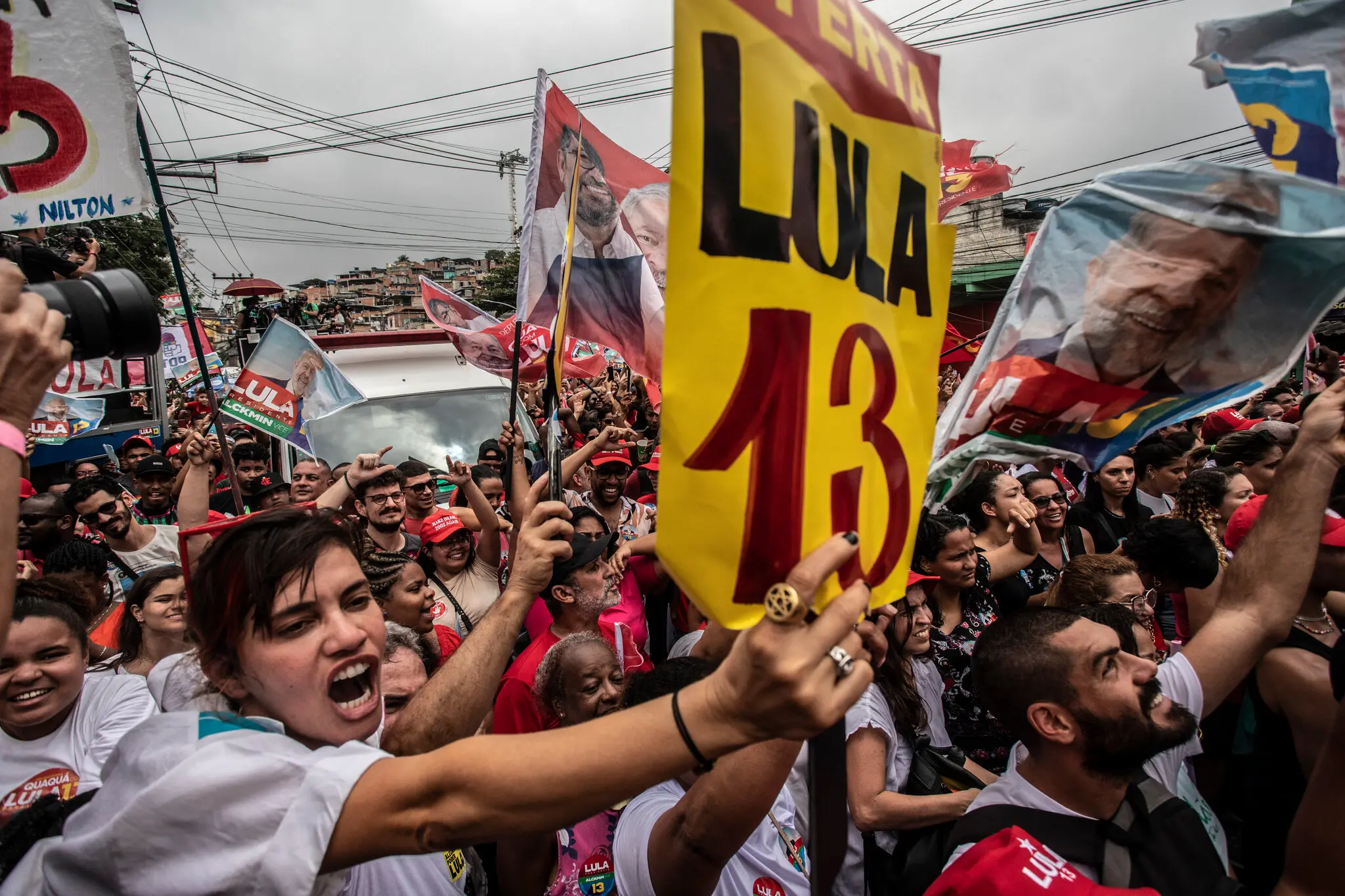The New York Times
Oct. 31, 2022
by Vanessa Barbara
Contributing Opinion Writer
Ler em português | Leer en español
SÃO PAULO, Brazil — Four years of madness are nearly over. In a tense second-round runoff, Luiz Inácio Lula da Silva prevailed over President Jair Bolsonaro, taking 50.9 percent of the vote. Barring a dramatic turnaround — the dreaded coup that has hung over the country for months, for example — Mr. da Silva will, on Jan. 1, be Brazil’s president.
It wasn’t easy. The past month has been a distillation of the Bolsonaro era. There’s been rampant misinformation. (Mr. da Silva’s campaign had to confirm, in response to wild rumors circulated on social media platforms, that he “had not made a deal with the devil nor has he ever talked to Satan.”) There’s been ample discussion of cannibalism, freemasonry and the supposedly desirable politics of the medieval era. And of course, there’s been the threat of political violence, seemingly blessed from the top.
At last, for the sake of our collective mental health, we can say that Mr. Bolsonaro has been beaten. It is not that the country is strongly aligned with Mr. da Silva and the center-left politics of the Workers’ Party, which governed the country for 13 years, ending in 2016. It’s more that the past four years under Mr. Bolsonaro showed us how low a nation could go and we’re desperate to emerge from the swamp of political despondency.
There’s a lot about the administration I won’t miss — its murderous neglect, its deep-rooted corruption, its fanaticism. One of the greatest reliefs will be no longer having to participate in crazy discussions. Brazil, at last, can get back to a semblance of sanity.
It’s hard to believe how much public debate has shifted. Nine years ago, Brazilians took to the streets in favor of free public transport. How far are we from that sort of civic-mindedness today? Now we spend much of our time asserting (in an increasingly exasperated manner) that virology actually exists and climate change is not a globalist hoax.
We are afraid to take to the streets in protest and give the government a reason to attempt a coup. We think any civilian in a passing car may be armed. We know that wearing red will be seen as a political statement. (A Brazilian Catholic cardinal was recently taken to task over his traditional red clothes, showing that not even the clergy is above suspicion.) We do not dare discuss the news with our neighbors, for fear of what they might say. The elevators have never been so quiet.
The truth is that Brazilian society has always been dominated by conservative forces. None of the advances of the past two decades have come easily — the social welfare program Bolsa Família, affirmative action in universities and the public sector or same-sex marriage. They were all met with derision, if not downright indignation, from most conservatives. But these were battles fought between the center left and the center right, which were then both sufficiently reasonable to engage in democratic debate. That changed when Mr. Bolsonaro arrived on the national scene. Gradually at first and then suddenly, a dam of repressed right-wing extremism burst.
Day after day, the integrity of public discourse has been liquefied by conspiratorial claims, turbocharged by social media and encouraged by Mr. Bolsonaro. We have been obliged to waste our time publicly refuting the theory that vaccines contain nanobots or that, as he put it, the Amazon rainforest “cannot catch fire.” All that energy, which could have gone to demanding a better public health care system or a stronger response to climate change, was instead swallowed up combating lurid nonsense.
But Mr. Bolsonaro gave us no choice, right up to the election. There is little doubt that he aimed for autocracy and would seize any opportunity to remain in power; the need to defeat him became an absolute necessity, taking precedence over every other concern. That explains the breadth of the coalition around Mr. da Silva’s candidacy, which included even previous opponents from the center right. The electoral contest was reduced to a binary: for or against Mr. Bolsonaro.
In truth, it isn’t that simple. For one thing, there is no tangible solution for how social networks seem to push citizens to extreme positions, deepening polarization. For another, politicians endorsed by Mr. Bolsonaro are now an established part of the political landscape. More than a dozen Bolsonaro-supporting governors, out of 27 governors nationwide, were elected, and his party is the largest in the Senate, after winning eight of the 27 seats up for grabs. (Some of the new senators, who will stay in power for the next eight years, are former ministers in Mr. Bolsonaro’s administration.) The far right also increased its influence in Congress: The president’s party won 99 seats in the 513-member lower house. Mr. Bolsonaro may leave office, but Bolsonarismo is far from over.
That poses serious challenges for the incoming administration. Not only will an emboldened far right be a constant thorn in Mr. da Silva’s side, but it will also force him to rely on the parties of the center, opening the way for the — often corrupt — exchange of favors that has marred Brazilian democracy since its inception. Even so, this opportunity for a new political trajectory must not be undervalued. The far right, having occupied the presidency, could be pushed back to the fringes. At the very least, we might get a government concerned more with rising inequality and hunger than with the number of followers at its motorcycle rallies. That alone is a tonic.
Crucially, Brazilians should be able to return to a discussion of more urgent topics, such as the country’s housing deficit, public education, military police and racism. Maybe we could also talk about things that interest and astound us, that give us pleasure. (Turtles and astronomy, anyone?) After all we’ve been through, we deserve to enjoy some respite from the madness.
A version of this article appears in print on Nov. 1, 2022, Section A, Page 22 of the New York edition with the headline: Brazil May Finally Be Free From the Madness of Bolsonaro.


